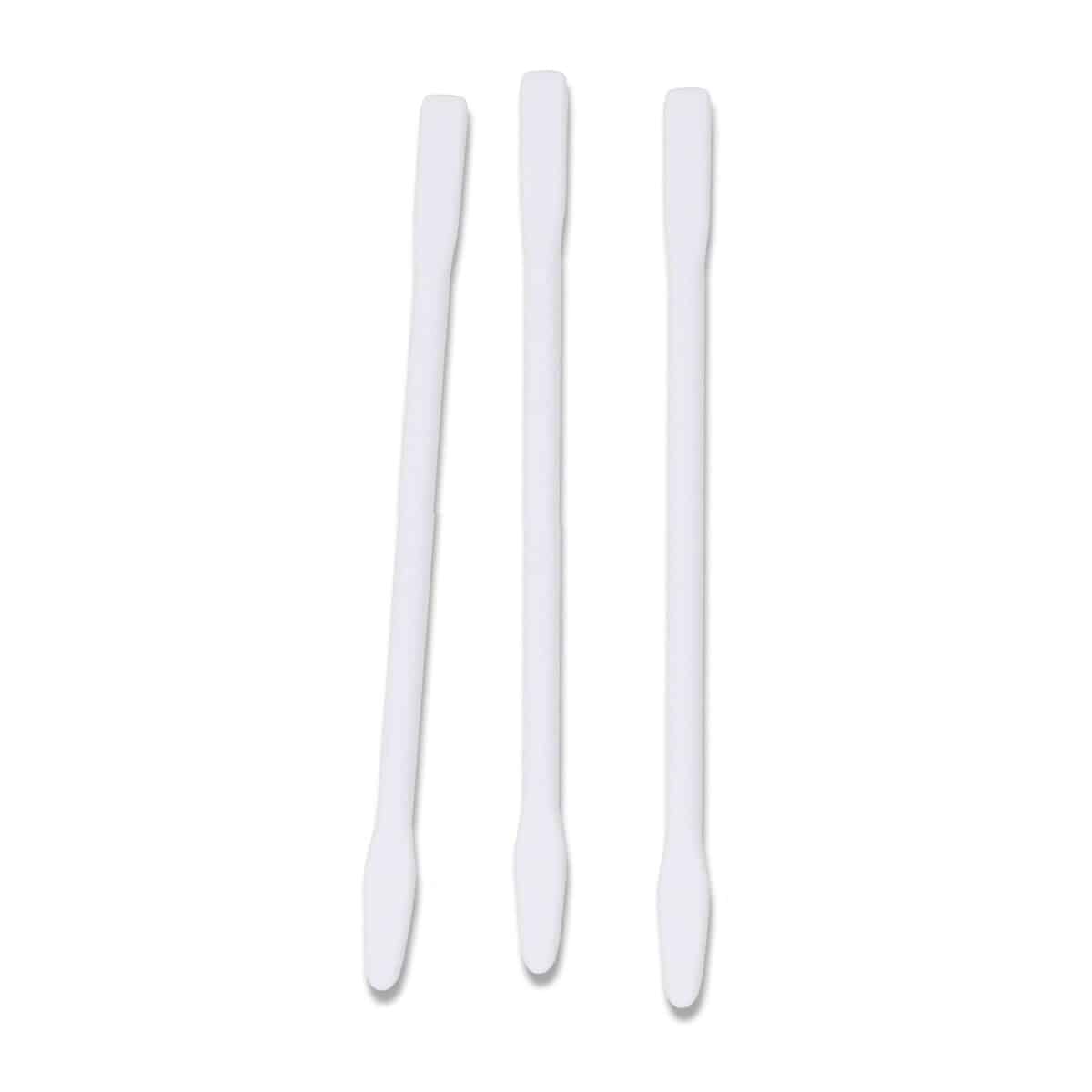Welcome, resin tumbler fans and craft enthusiasts, to the exciting world of resin art! Whether you’re a novice or an experienced artist, this blog post is your go-to guide for mastering the art of mixing epoxy resin. Get ready to unleash your creativity, as we dive into the mesmerizing realm of resin art!
One of the most important steps of working with resin is mixing. We get a lot of questions about mixing epoxy from resin artists who are just starting out. As well as from more experienced artists who need a little help. It makes sense! Since mixing the resin produces the chemical reaction that will ensure it cures, this is the step that can make or break our projects. But no worries. We break down each step of how to mix epoxy resin so you’ll know just what to do along the way!
Resin Art for Beginners: How to Mix Epoxy Resin
If you have never worked with resin before it can feel a little intimidating at first. But we are here to tell you that, armed with a little knowledge before you start, you will become a resin mixing pro in no time! Those of us who have been creating resin art for awhile can practically mix up a batch in our sleep. (And some of us do when those holiday orders are coming in hot and fast!) When you keep a few key things in mind, you’ll be right there with us in no time!
Understanding the Basics
To begin your resin art journey, it’s crucial to understand the basic components involved in mixing epoxy resin. Epoxy resin consists of two parts – the resin and the hardener. These two components work together in a chemical reaction to create a durable, glossy finish on your artwork.
 Another thing to know about epoxy is that it can be sensitive to temperature. Ideally, Artist Resin and Casting Resin prefer a room temperature in the low 70’s in order to move and cure well. If you are in a colder climate you can help your resin by using a heater to keep your room at a consistent warm temperature. You can also warm your resin in a warm water bath before you combine it.
Another thing to know about epoxy is that it can be sensitive to temperature. Ideally, Artist Resin and Casting Resin prefer a room temperature in the low 70’s in order to move and cure well. If you are in a colder climate you can help your resin by using a heater to keep your room at a consistent warm temperature. You can also warm your resin in a warm water bath before you combine it.
Another option is to use our Medium Viscosity Artist Resin. Since it is thinner than the original, it is much more flexible about temperature. So you can use it in climates like we have here in Missouri, where we get all four seasons in a single week, and you won’t have to worry about having issues.

Artist Ann Upton
Determine which Type of Resin to Use
If you aren’t sure which resin will be the perfect one for your project, we can help with that! First decide whether you should be using Artist Resin or Casting Resin by reading the post The Difference Between Artist Resin and Casting Resin.
If the answer is Artist Resin (and it often is!) check out our post All About our Different Artist Resins: What to Use When. This will explain which type of Artist Resin will work best for tumblers, molds, and other projects. And which type of epoxy will work best for your environment.
Gather Your Materials

Before you start mixing epoxy resin, make sure you have the following essentials:
- Counter Culture Artist Resin or Casting Resin, parts A and B (don’t worry, they come as a set!)
- Safety gear (gloves, filter mask, and a well ventilated workspace)
- Measuring cups, mixing cups, and stir sticks
- Protection for your work area (we love silicone mats because they are so easy to clean!)
- Colorants, glitter, mica powders, or other additives (these are optional but oh so much fun!)
- Heat source for popping bubbles (a heat gun or a propane torch with green camping gas)
Measure Accurately
 Achieving the perfect resin mixture requires precise measurements. You need equal amounts of Part A and B. To begin, you need an idea of how much total resin you need for your project. If you are doing a tumbler, this will be just a small amount. If you are working with molds or a larger project, you can use our resin calculator to determine how much epoxy you will need.
Achieving the perfect resin mixture requires precise measurements. You need equal amounts of Part A and B. To begin, you need an idea of how much total resin you need for your project. If you are doing a tumbler, this will be just a small amount. If you are working with molds or a larger project, you can use our resin calculator to determine how much epoxy you will need.
Once you have decided on how much total resin you need, divide that amount in two. Because you will be using half resin (Part A) and half hardener (Part B). For example, if you need one ounce total of resin, pour 1/2 ounce of Part A into one measuring cup. And 1/2 ounce of Part B into a second measuring cup.
Mix Thoroughly
 Once you’ve measured the resin and hardener, it’s time to mix them together. Pour your Part B into the Part A, ensuring none is left behind. Begin stirring slowly, making sure to scrape the sides and bottom of the container to incorporate all the components effectively. Gradually increase the speed while stirring.
Once you’ve measured the resin and hardener, it’s time to mix them together. Pour your Part B into the Part A, ensuring none is left behind. Begin stirring slowly, making sure to scrape the sides and bottom of the container to incorporate all the components effectively. Gradually increase the speed while stirring.
Be cautious not to introduce too many air bubbles by stirring too quickly. But also don’t stress out about it. Bubbles will inevitably form and we can pop them later with a torch or a heat gun. Mix your resin in the measuring cup for about 2 minutes.
Then transfer it to a second mixing cup, again scraping the sides and bottom of your container so nothing gets left behind. Continue mixing in the second container for another 2-4 minutes, scraping the sides and bottom as you go.
How to Know When your Resin is Well Mixed

Artist Ann Upton
There are a couple of indicators that your epoxy has been mixed well enough. When you’ve mixed the two parts of your resin in two separate containers for 2-4 minutes each time, it is time to look closely at it.
If you still have some mixing to do, you’ll see little stripes or ribbons through your mixture. To test this, scrape a little of your mixture on the side of your cup. If you see the ribbons, keep on mixing and test again in a minute. If you don’t see them, you are ready to go. You want to make sure that all of those strings or ribbons are gone.
If we leave them, at best it will cause the resin to be cloudy when it is cured. At worst, your resin won’t cure because the chemical reaction wasn’t able to happen. So, just keep on mixing until those strings are gone.
Add Color and Sparkle

Artist: Honey Creak Creations
Resin art allows you to infuse vibrant colors and dazzling effects into your creations. You can add pigments, mica powders, acrylic paints, and definitely glitter to your resin mixture.
Experiment with different color combinations and techniques to achieve stunning results. Remember to mix the additives thoroughly to avoid uneven distribution. Many resin artists like to use multiple colors of resin in their projects. To do this, start by mixing your resin like we described in the last step.
Then separate your combined clear resin into one cup for each color you’d like to use. From here you can create the perfect shade in each cup. Don’t be afraid to combine colors and elements too!
For instance, Dispersion Colors give you amazing shades. And choosing a coordinating mica powder to add to your colorant will give you a gorgeous shimmer that will take your color to the next level!
Embrace Your Creativity

Artist: Meg Epps
Resin art offers endless possibilities for creativity! Pour the mixed resin onto your desired surface or mold and let your imagination run wild. Use various tools like brushes, heat guns, or alcohol sprays to create mesmerizing patterns and textures. Explore different techniques like resin casting, geode art, or resin tumbler making to find your unique style.
If you are looking for inspiration and tutorials for different types of resin art, you are in the right place! Our blog has tons of options for you. Check out the headings on the right side of the main blog page because we have them separated for you by project type. That way you can check out lots of different types of resin art. Or dive into one type and really get familiar with it!
If you are looking for a project that doesn’t have a category listed specifically for it (like resin pens or resin jewelry) you will find them under the category of Art Resin. Some of the most popular projects among resin artists are:
- Tumblers
- Coasters
- Keychains
- Pens
- Trinket Dishes
- Jewelry
- Floral Art
- Wall Art
- Kitchen Items
- Magnets
- Car Coasters
- Badge Reels
…and there are so many other unique and beautiful things that you can create with resin. If you’re here, chances are you are already a creative. Resin is another amazing way to let your natural creativity shine!
Practice Patience

Artist: Misty Leonard
After pouring the resin, it’s crucial to exercise patience. Allow the resin to cure according to the package instructions. Depending on which of our resins you are using this will take 24-72 hours. With the exception of our Fast Set which comes in at around 4 hours and is perfect for the middle layers of resin tumblers.
Whichever resin you choose, avoid touching or moving your artwork during this period to achieve a flawless finish. It’s a bit of a wait but we promise, it’s worth it!
The Finishing Touches
Congratulations, dear resin artists-to-be! You’ve now embarked on an exciting journey into the world of resin art. By following these steps and unleashing your creativity, you’ll soon be creating stunning resin masterpieces that will leave everyone in awe. Remember, practice makes perfect, so don’t be afraid to experiment and explore new techniques. Happy resin mixing, and may your artistic journey be filled with endless beauty and inspiration!
So, grab your epoxy resin, put on your creative hat, and let’s dive into the enchanting realm of resin art together!
Pop of Color Shock Paints are sold exclusively at Counter Culture DIY. So now you have even more reasons to stop by!
You can find awesome video tutorials like this one on our YouTube channel!
Be sure to follow us on Pinterest so you can stay on top of everything that’s new and never miss a blog post!
If you want more inspiration and information we have a Facebook group for that. Join us in Counter Culture DIY Artist Support where we, and other artists, offer ideas, answer questions, and support each other!
Do you have an art project using any of our products that you want to share? Send it to us at support@counterculturediy.com, and we can feature them here!



